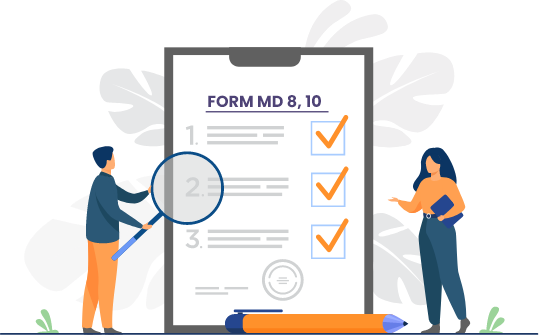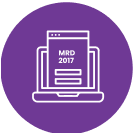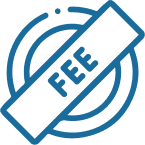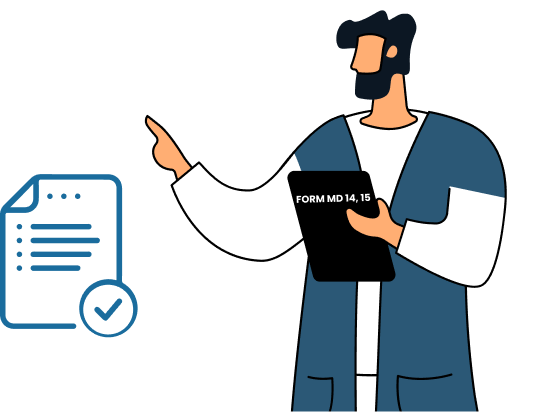Investigational New Drug in India - CT-04, CT-16 & CT-06, CT-17

CliniExperts is a 360-degree regulatory solutions provider with over a decade of industry regulatory experience. Our deep industry networks and highly updated team create a smooth experience in receiving necessary licenses and approvals for your products.
Investigational New Drug – Overview
Both manufacturers and importers are required to obtain approval from CDSCO to perform an investigational new drug or new drug clinical trial. The procedure to obtain the license is as follows:
- Submit your CT-04 application via the SUGAM portal together with all necessary supporting documentation and the applicable government fee
- CDSCO will review the application and, if necessary, ask questions.
- A SEC meeting will be held to assess the data supplied with the application and make recommendations.
- fter the questions are answered and the responses are submitted, CDSCO will authorise CTNOC to carry out the study.
- Within two years of receiving the CTNOC, the applicant must start a clinical trial and notify CDSCO of it. Typically, within 90 days the license processing is completed, and manufacturers receive the license.

Who Can Apply?
An application for a clinical trial or BA/BE study of a novel drug or an experimental new drug may be submitted by any individual, institution, or organisation with a permanent establishment in India.
How To Apply?
The Applicant must follow the following process:
-

Sign in to your SUGAM portal account.
-

Select new application submission.
-

Select the GCT division and then the form CT-04.
-

Enter the drug's pharmaceutical information, information about the research sites, and any other pertinent information.
-

Attach every document that was called for in CT-04.
-

Pay the government charge by the study's phase. Send in your application.

Validity
The license is valid for 2 years from the date of issuing.

Fee Involved
The government charges a fee for the issuing of a license.
- Phase I: INR 300,000
- Phase II: INR 200,000
- Phase III: INR 200,000
- Phase IV: INR 200,000
Important Documents

Several key application documents needed are mentioned as follows:
- Administrative and legal records (COPP, market and EC approvals, status of drug regulation, etc.).
- Manufacturers' information
- CMC data, which provides precise chemical and pharmaceutical details about drug substances and drug formulations.
- Sufficient reports and summaries of preclinical studies.
- Clinical research (study reports, protocol, CRF, ICF, undertakings, etc.)
Timeline to get
CT-06, CT-17
from Central Drugs Standard Control Organisation
90
DAYSEssential Tips
One should remember the following things most important when preparing and submitting this licence application
- The NDCT Rules, 2019 should be followed by all undertakings and declarations.
- To have enough data on CMC, preclinical and clinical trials to be submitted per the checklist.
- The applicant must have enough information (including worldwide clinical data and regulatory status of the drug) to present to the committee if the SEC recommends it to obtain approval. The obstacles or issues that are most likely to arise when filling out or applying are:
- Failure to comply with the NDCT Rules, 2019 regarding the formats of PIS, ICF, labels, or declarations.
- Queries are triggered by the application's lack of pre-clinical data
- The likelihood of receiving questions is increased by the lack of three batches of COAs and stability data for both drug substance and drug product.
Related Services
Test license to Manufacture Medical Devices in India - MD 12 & MD 13
Importers | Regulatory Body: CDSCO
CliniExperts dedicated team helps in getting the Permission For Test License To Manufacture Medical Devices. We strategically plan the process for regulatory approval of manufacturing test license for medical devices in Form MD 13.
Frequently Asked Questions
Is it possible to undertake Phase-I (first-in-human) research of a novel medication in India if the drug is created or discovered outside of India?
No. Phase I data should be supplied with the application for novel drug compounds found or produced outside of India. The central licencing authority (CLA) may provide approval to repeat phase I studies or to undertake phase II trials and then phase III trials concurrently with other global trials for that medicine after receiving phase I data generated outside of India.

When may the approval of a clinical trial and a new drug consider relaxation, abbreviations, omissions, or delays of non-clinical and clinical data?
Under life-threatening or serious disease conditions, rare diseases, and drugs intended to be used in diseases of particular relevance to the Indian scenario or unmet medical need in India, disaster, or special defence use, such as hemostatic and quick wound healing, enhancing oxygen carrying capacity, radiation safety, drugs for combating chemical, nuclear, or biological weapons, the requirement of non-clinical and clinical data may be relaxed, abbreviated, omitted, or deferred. However, based on the nature of the new medications, the intended indication, etc., such relaxation, abbreviations, omissions, or deferments of data will be assessed on a case-by-case basis.

Does the CLA need to approve the conduct of clinical trials in India?
Yes. Any sponsor or researcher wishing to begin a clinical study for a novel medication, or an investigational novel medication must request CLA's approval in Form CT-06. The applicant must apply in Form CT-04 together with all other required documentation listed in the Second Schedule and payment by the fees listed in the Sixth Schedule of the 2019 CT Rules. A person from a facility or organisation that is funded or owned entirely or in part by the central government or by a state government, however, need not pay a fee to submit such an application.

After two years following CLA approval, can a clinical trial be started?
No. If the sponsor or investigator does not obtain prior approval from CLA before beginning the trial, a CLA-approved clinical trial must be started by enrolling the first subject within two years of the date of authorization. Form CT-06's automatic approval or form CT 4A's permission to begin a clinical trial are both valid for two years from the date of issuance unless the CLA decides to prolong them.

